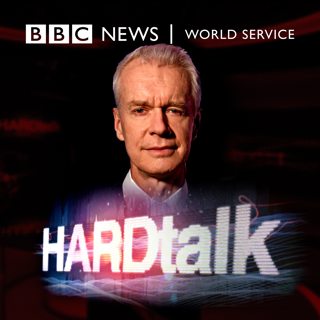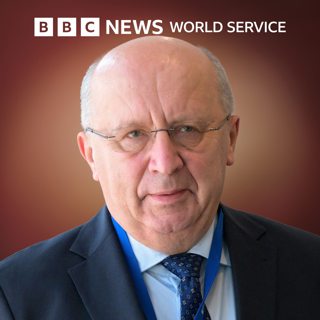
Kumi Naidoo, executive director of Greenpeace International
Greenpeace has campaigned against environmental degradation, for more than 40 years. This month it’s mobilising its activists to make a stand on saving the planet at the UN climate change conference in Doha. Four decades on and with global warming slipping down the agenda – is anyone listening to what Greenpeace have to say? Hardtalk talks to South African Kumi Naidoo – executive director of Greenpeace International. Doesn’t his organisation need a new bold vision to make an impact – and if so – what is it? (Image: Kumi Naidoo, Credit: AFP/Getty Images)
23 Nov 201223min

Riad Hijab, former Prime Minister of Syria
HARDtalk travels to the Jordanian capital Amman, just 100km north of the Syrian border. Three months ago Riad Hijab crossed that border and became the most senior Syrian government official to defect from the regime of President Bashar al Assad. He had been appointed Prime Minister by President Assad in June, but six weeks later he fled. Why? And is there a role for Baathist defectors in Syria's future?(Image: Riad Hijab in front of a number of microphones, Credit: AFP/Getty)
21 Nov 201223min

Vandana Shiva, environmentalist
Hardtalk speaks to the original tree hugger. The phrase was coined back in the 1970s when she - along with a group of women in India - hugged trees to stop them from being chopped down. In the decades since, Vandana Shiva has become known throughout the world for her environmental campaigns. She says a billion people go hungry in the world because of the way greedy international companies go about their business. So is it a naïve world view or could we really end poverty and improve everyone's life by returning to old fashioned ways of farming?(Image: Vandana Shiva hugging a tree, Credit: AFP/Getty Images)
19 Nov 201223min

James Cracknell - former Olympic rower
James Cracknell is a former Olympic rowing champion who has performed astonishing feats of endurance from the Sahara to Antarctica. But his toughest challenge has come by accident, not design. Two years ago his skull was smashed by a truck as he cycled across America. Miraculously he survived and his body healed, but his brain suffered significant damage. How has he responded to a test which changed his personality and his life?
16 Nov 201223min

Radoslaw Sikorski - Foreign Minister of Poland
Poland’s economy is growing, as is its diplomatic clout. The Polish foreign minister Radoslaw Sikorski has backed Germany's vision of much deeper EU integration. But do Poles really want to cede their hard won sovereignty to Brussels and Berlin?
13 Nov 201223min

Leonid Kozhara - Foreign Policy Advisor to the Ukrainian President
Ukraine's just held parliamentary elections. A cause for celebration, and the flowering of democracy in a former Soviet republic? Not if you read the reports of international election monitors or hear the comments of the world's top diplomats. So eight years after the Orange Revolution, with some of the government's leading critics serving long sentences in jail, has Ukraine made its choice? Is it in effect turning its back on the offer of membership of the EU, the club of Europe?
9 Nov 201223min

Hisham Qandil - Prime Minister, Egypt
Hardtalk is in Cairo to assess the state of Egypt's post-revolutionary politics. Right now, the report card is decidedly mixed. Egypt has a democratically-elected president but arguments over the framing of a new constitution have sparked clashes between rival Islamist and secular activists in Tahrir Square. Stephen Sackur speaks to Egypt's Prime Minister Hisham Qandil and asks is the new Egyptian government living up to the promise of the Tahrir revolution?(Image: Egyptian Prime Minister Hisham Qandil. Credit: GIANLUIGI GUERCIA/AFP/GettyImages)
7 Nov 201223min

Andreas Mavroyiannis, Deputy Minister for European Affairs for Cyprus
The European Union won the Nobel Peace Prize for fostering unity in Europe, but the award was made during the current EU presidency of its only divided member - Cyprus. Since 1974 the island has been partitioned between its Turkish-occupied north and the Republic of Cyprus which joined the EU eight years ago.Cyprus is also presiding over the biggest crisis in the EU's history - a potential financial meltdown triggered by indebted nations like Greece and Cyprus itself. Zeinab Badawi talks to Andreas Mavroyiannis the deputy minister for European Affairs for Cyprus. Does he believe the peace prize is a shot in the arm for the EU that will help boost its confidence and bring vital momentum in finding a blueprint for recovery?
5 Nov 201223min






















